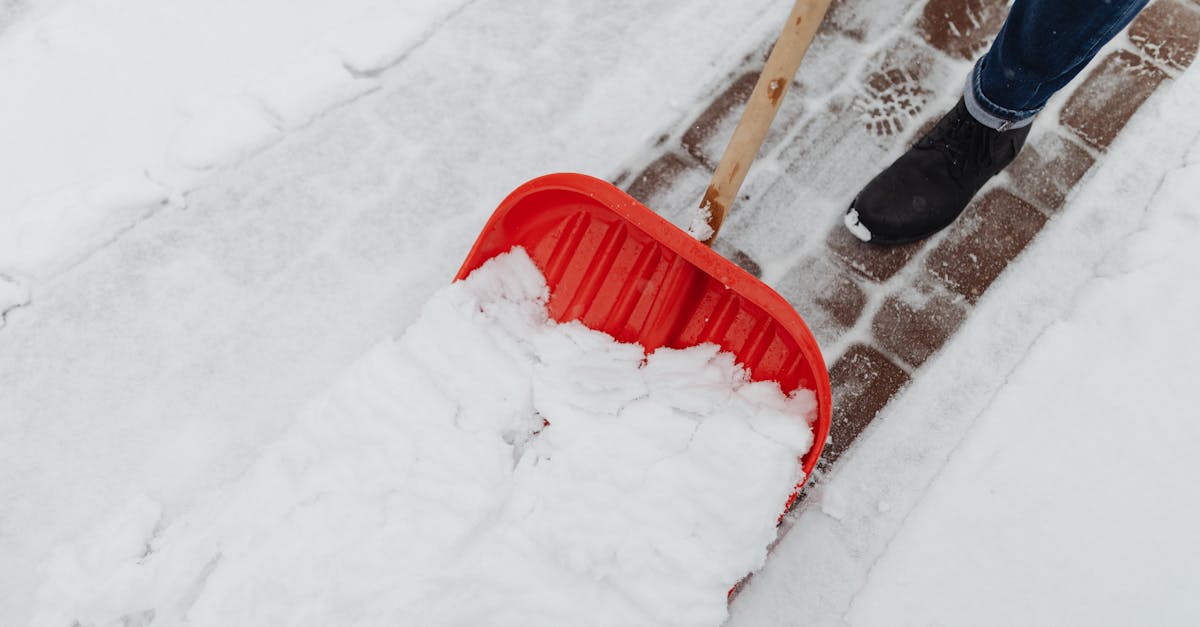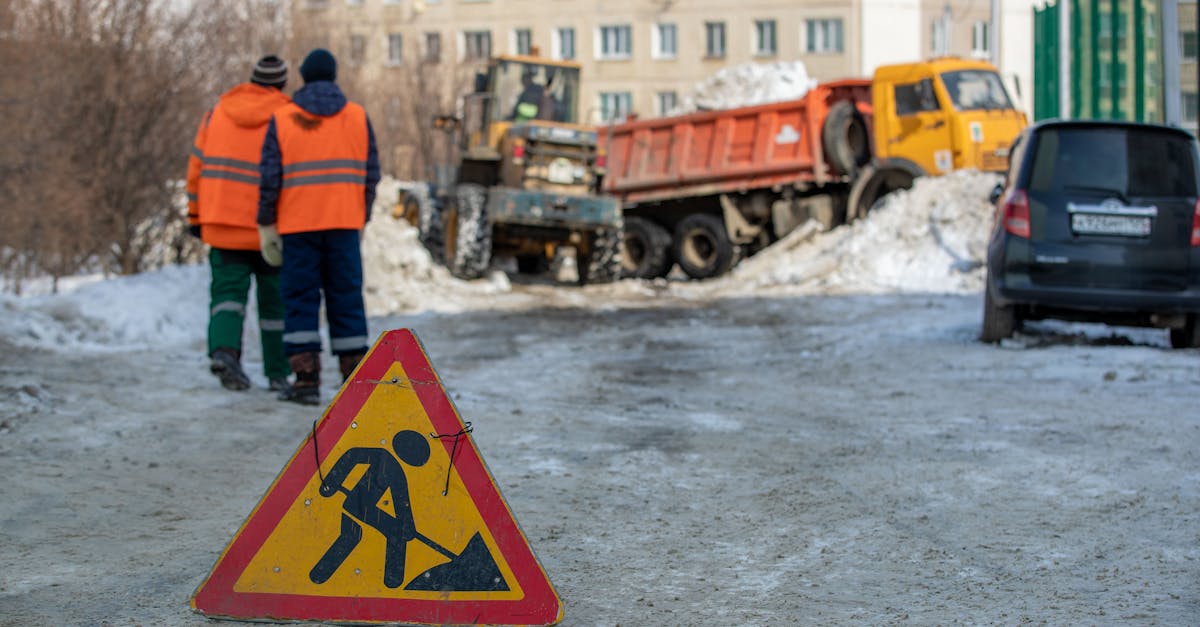
Table Of Contents
Rental vs. Purchase Decisions
When considering snow removal options, the decision to rent or purchase equipment can significantly affect both budget and efficiency. Renting equipment may be ideal for individuals or businesses that only require snow removal from driveways during certain months of the year. This approach allows for access to high-quality machinery without the hefty upfront costs and burdens of ownership, making it a practical choice for seasonal needs.
On the other hand, purchasing equipment can be advantageous for those anticipating frequent use throughout the winter. Owning snow removal tools provides immediate access and the flexibility to address snowfall as it occurs, especially important for large driveways or commercial properties. This long-term investment often leads to lower overall costs if snow removal is a regular requirement, as compared to repeatedly renting machinery each season.
When to Rent Snow Removal Equipment
Renting snow removal equipment can be an excellent choice for those who experience heavy snowfall only occasionally. For residents living in regions where winter storms are infrequent or unpredictable, the cost of purchasing expensive machinery can be unjustifiable. Rental options allow individuals to access high-quality snow removal machines without incurring hefty upfront costs. This flexibility makes it easier to respond to unexpected snowfall events without the commitment of ownership.
For businesses or homeowners needing to clear large areas, such as parking lots or expansive driveways, rental equipment can provide the necessary power without the storage and maintenance burdens associated with ownership. This is particularly useful for tasks like snow removal from driveways, where efficient, high-capacity machinery can significantly reduce effort and time. Renting allows for the selection of specialized equipment tailored to specific snow conditions, ensuring optimal efficiency for the job at hand.
Environmental Impact of Snow Removal
Snow removal significantly impacts the environment, both positively and negatively. Traditional methods often rely on chemical de-icers that can compromise local ecosystems and waterways, leading to long-term ecological consequences. The use of gas-powered equipment also contributes to air pollution and noise levels in residential areas. Such factors can disrupt local wildlife and affect the overall quality of life for nearby residents.
On the other hand, more environmentally-conscious approaches are gaining popularity. Organic de-icers have emerged as viable alternatives to harmful chemicals, helping to protect nearby vegetation and bodies of water. Moreover, innovative snow removal techniques, such as using electric equipment or hand tools, minimize carbon footprints and reduce noise pollution. Effective strategies for snow removal from driveways can include compacting snow and strategic plowing that considers the surrounding environment, promoting a balance between practicality and ecological responsibility.
EcoFriendly Practices
The environmental impact of snow removal practices often raises concerns among homeowners and businesses. Traditional methods, such as chemical deicers, can harm local ecosystems and water sources. More sustainable alternatives exist, including the use of sand or gravel on surfaces to improve traction without compromising environmental integrity. Additionally, choosing manual methods for snow removal from driveways, like shoveling or using a snow blower with reduced emissions, can significantly lessen the overall carbon footprint associated with winter maintenance.
Employing eco-friendly practices also extends to the materials and techniques used for snow management. Community efforts to establish snow recycling programs can effectively repurpose melted snow, minimizing runoff issues. Incorporating native plants in landscaping around driveways can further enhance drainage while preventing soil erosion. By emphasizing sustainable methods, property owners can contribute positively to their immediate surroundings while still ensuring safe and effective snow removal from driveways.
Seasonal Maintenance for Equipment
Seasonal maintenance for snow removal equipment is crucial to ensure optimal performance during winter months. Regularly inspecting and servicing tools like snow blowers, shovels, and plows can prevent unexpected breakdowns and extended downtime when snow removal from driveways is essential. This maintenance includes checking the oil levels, examining belts and blades, and cleaning any debris from past uses. Taking the time to prepare tools can make a significant difference in efficiency.
Before the snow season begins, it's wise to organize and store equipment properly. Keep items like shovels and snow blowers in a dry location, free from corrosion and moisture damage. Performing a thorough check will help identify any worn parts that require replacement, reducing the chance of trouble during heavy snowfall. Having well-maintained gear ready for use can save time and energy when tackling snow removal from driveways and ensure a smoother, more effective operation.
Preparing Your Gear for Winter
Winter preparation requires a careful assessment of your equipment and tools. Inspecting your snow removal gear ensures it is ready for the harsh conditions ahead. For instance, check the functionality of your snow blowers and shovels. Clear any debris from your driveway and storage areas to create a safe workspace for snow removal from driveways. Lubricate moving parts to prevent rust and ensure smooth operation.
It is also vital to organize your equipment for easy access during a snowstorm. Store shovels, salt, and any other essentials in a designated space near your entrance. This approach not only saves time during emergencies but also minimizes the chance of accidents. Adequate preparation helps you tackle unexpected snowfall efficiently. Making sure snow removal from driveways is prioritized allows for safer travel in and out of your home during winter months.
FAQS
What are the benefits of renting snow removal equipment?
Renting snow removal equipment can be cost-effective for those who only need it for short periods, allows access to the latest technology without a long-term commitment, and eliminates the need for storage and maintenance between uses.
When should I consider purchasing snow removal equipment?
Purchasing snow removal equipment is ideal for those who experience heavy snowfall regularly, have the capacity to store and maintain the equipment, and prefer the convenience of having it readily available at all times.
How can I ensure my snow removal practices are environmentally friendly?
You can adopt eco-friendly practices by using electric or battery-powered equipment, applying biodegradable de-icing agents, reducing salt usage, and maintaining your equipment to ensure efficient operation and lower emissions.
What seasonal maintenance should I perform on my snow removal equipment?
Seasonal maintenance should include checking the fuel system, sharpening blades, inspecting belts and cables, checking tire pressure, and cleaning the equipment to ensure optimal performance when winter arrives.
What should I do to prepare my gear for winter snow removal?
To prepare your gear for winter, perform a thorough inspection, conduct necessary repairs, ensure all parts are functioning correctly, stock up on supplies like fuel or de-icing agents, and familiarize yourself with the equipment operation before the snow season begins.
